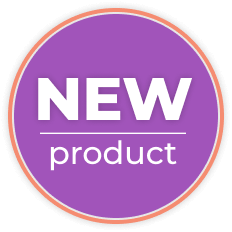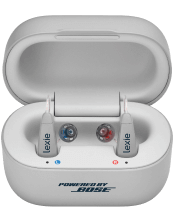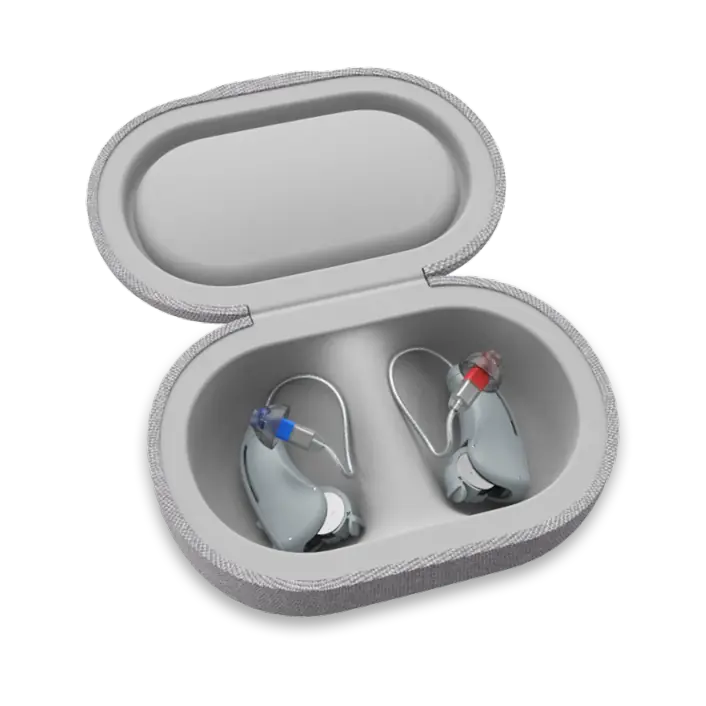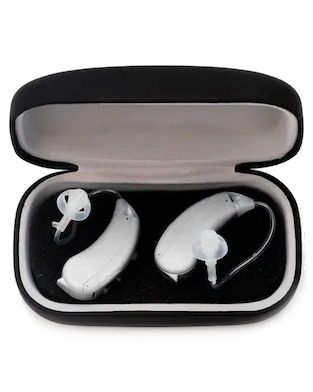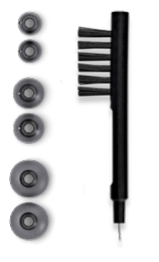What is Tele-Audiology? – Everything you need to know
Published: July 24, 2020
Updated: March 9, 2021
What is Teleaudiology?
Telemedicine refers to consulting with a medical expert through the use of videos or online chats. Many health professionals use telemedicine, including hearing health professionals. Telecommunication systems have proven to be a quick, innovative, and efficient way to assist clients. This is how the term “Teleaudiology” (TA) was coined. With TA, professionals are able to contact their clients quickly which allows them to establish meaningful and sustainable relationships as they work together.
Why is teleaudiology necessary?
Many individuals in more rural areas are burdened by travel time and cost and TA is able to alleviate these burdens. It is important to remember that TA can also benefit urban dwellers, and if an individual is unable to make a physical visit to the hearing health professional, they could schedule a TA session.
The prevalence of hearing loss has increased significantly over the years, making it one of the most common global disabilities, increasing the need for hearing-related services. This is a challenge, especially in countries where the supply of hearing health professionals does not meet the demand of the public. TA allows hearing health professionals to meet the demand in an efficient and effective manner, without affecting the quality of consultation.
Methods of teleaudiology
Mobile clinics: This is becoming a popular form of service in more recent years especially in countries with limited resources. A clinic in a mobile truck attends to areas where individuals have difficulty accessing services. A nurse or assistant will assess and treat an individual. For audiology related needs, this nurse and assistant can liaise with the hearing health professional via a telephone call. If calls are not possible, the nurse or assistant can take pictures and record results which will be forwarded to the hearing health professional for interpretation and recommendations.
Live virtual care: Allows individuals to chat live to the hearing health professional via a video call or webchat. The hearing health professional and individual have a conversation in ‘real-time’. This method requires that both the individual and hearing health professionals have access to a computer and reliable internet connection. Through this method, hearing health professionals can instantaneously address individual concerns, conduct therapy, and monitor hearing aid progress.
Self-monitoring: This method uses mobile apps and allows individuals to self-identify and monitor hearing losses. It also allows individuals to connect with and schedule appointments with hearing health professionals. Mobile screening and detecting apps are available through the app store.
Limitations of tele-audiology
With mobile clinics, you may find that a hearing health professional is not always available to have a telephonic conversation with nurses/assistants. This may result in nurses having to solve immediate problems by themselves. Another obstacle is that individuals may not receive results, feedback, and treatment immediately as a hearing health professional is not present thus delaying essential care.
Some of the biggest problems TA faces are technology-related. For successful live virtual care to take place smartphone, or computer, a web camera, microphone, and high-speed internet is needed by both the individual and hearing health professional. This is not always possible.
TA is also associated with the risk of having technology or other professionals be the “eye” of the hearing health professional. If a medical diagnosis is missed, further damage can be caused. Therefore it is important that professionals receive the correct training before conducting TA services.
It is important to note that not all services, hearing health or otherwise, can be provided virtually. Hearing health professionals will guide individuals on the services that they are able to provide.
Teleaudiology requires training in order to be used effectively and individuals may need basic training on how to self-monitor their hearing loss correctly and safely. It is also recommended that hearing health professionals have training in this field to ensure they are able to provide holistic, individualized services.
Teleaudiology during Covid-19
The use of telecommunication has increased tenfold during the COVID-19 pandemic as it provides individuals with an alternative means to access services whilst obeying current laws.
A hearing health professional can use video conferencing to chat with individuals who are in need of services. While diagnosing may be difficult, hearing health professionals will be able to help individuals with troubleshooting issues with their hearing aids. and also advise and instruct the individual on how to proceed with the repair.
Through video conferencing, the hearing health professional can also conduct aural rehabilitation. Communication strategies or language development activities can be conducted over a video call. Self-monitoring applications during this time, allow individuals to screen and monitor hearing losses without having to leave their homes.
TA has proven to be useful during this time as it increases the safety of both the individual and hearing health professionals. Individuals can adhere to lockdown/quarantine rules by not leaving the house and they can save on the cost of transportation.
